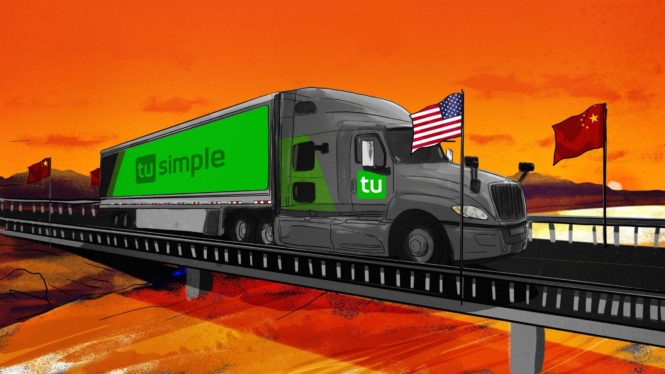Self-driving truck developer TuSimple may sell its U.S. business, the company said in a regulatory filing Wednesday.
TuSimple, which is on the verge of being delisted from the Nasdaq stock exchange for failing to file two quarterly reports, said it is exploring strategic alternatives for its U.S. business, including a possible sale.
The company also has operations based out of China and Japan, and has been doubling down on those in recent weeks. In June, TuSimple started testing its self-driving technology on public roads in Japan and also completed its first fully autonomous — meaning no human driver behind the wheel — test run on public roads in China.
In a filing with the U.S. Securities and Exchange Commission, TuSimple said that if it sells its U.S. business, it would focus its operations in Asia-Pacific and other global markets. This is something of an about-face for TuSimple. Since going public in 2021, TuSimple has staunchly identified itself as an American company with operations abroad, despite its founding team and earliest backers coming from China. The company was even mulling the sale of its Asia-Pacific business after facing regulatory scrutiny over its ties to the country, and ended up firing then-CEO Xiaodi Hou over TuSimple’s relationship with Hydron Motors.
In May, TuSimple said it would no longer be selling off its Asia business. Instead, the company set about its second round of layoffs in the last six months, both of which affected only U.S. employees.
TuSimple said it hired Perella Weinberg Partners as a financial advisor to explore possible transactions for its U.S.-based portion of the business.
The Nasdaq held a hearing with TuSimple last week to determine its status on the Nasdaq, but the results of the hearing have not yet been announced.
TuSimple did not respond in time to TechCrunch to comment.
This story is developing.
TuSimple may sell US business as it turns attention to Asia by Rebecca Bellan originally published on TechCrunch
https://techcrunch.com/2023/06/28/tusimple-may-sell-us-business-as-it-turns-attention-to-asia/


